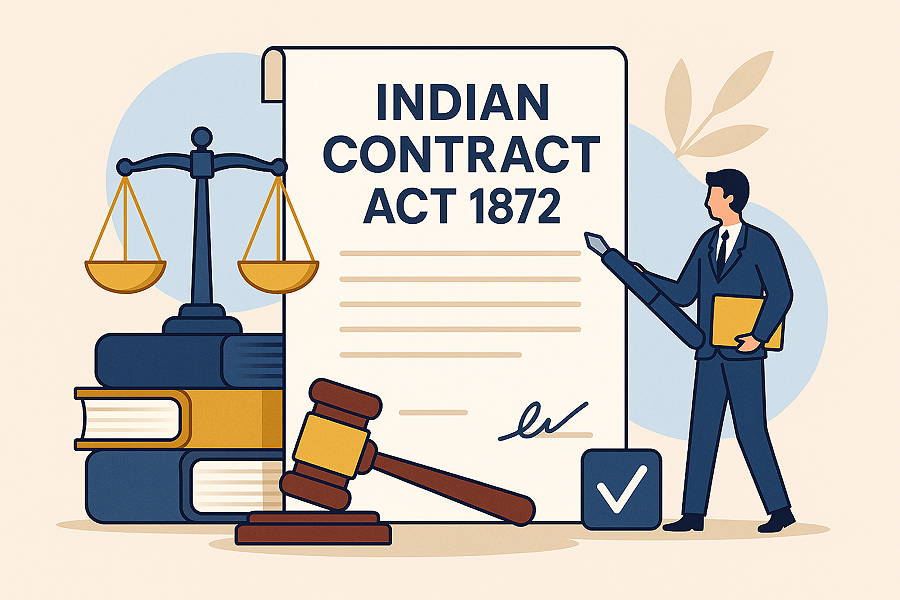The Indian Contract Act, 1872
UNDERSTANDING ESSENTIAL CONTRACTUAL TERMS
The Indian contract act, 1872 lays the foundation for all agreements and contracts made in India. Understanding its basic terms is crucial for individuals, businesses, and legal professionals alike. This article explains certain terms under the Indian Contract Act, 1872. This article simplifies some of the essential terms used in the act to help you grasp the fundamentals of contract law
Meaning of essential terms
| Proposal/Offer Sec 2(a) | When one person signifies to another His willingness To do or to abstain from doing anything With a view to obtaining the assent of that- • To such act or • Abstinence, He is said to make a proposal (i.e., offer) (Legal obligation) |
| Promise | When the person to whom the proposal is made. Signifies his assent thereto, The proposal is said to be accepted, A proposal, when accepted, becomes a promise |
| Agreement See 2(e) | Every promise And Every set of promises, forming the consideration for each other. Is an agreement |
| Contract Sec 2(h) | An agreement enforceable by law is a contract |
| Promisor & Promisee | When a proposal is accepted- •The person making the proposal is called as ‘promisor and •The person accepting the proposal is called as ‘promisee’. |
| Consideration | When, at the desire of the promisor The promisee or any other person Has – done/abstained from doing something, or – does/abstains from doing something: or – promises to do abstain from doing something. Such act/abstinence promise is called a consideration for the promise. |
| Void agreement | An agreement not enforceable by law is said to be void. |
| Voidable contact | An agreement is a voidable contract if- • It is enforceable by law at the option of one or more of the parties thereto. • It is not enforceable by law at the option of the other or others |
| Void contract | A contract Which ceases to be enforceable by law Becomes void when it ceases to be enforceable. |









